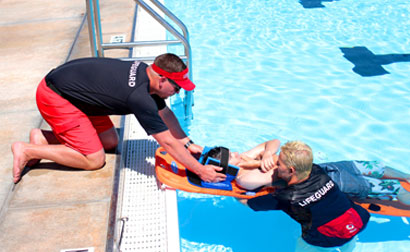Dive into the world of lifeguarding with our comprehensive beginner’s guide. Learn about lifeguard training near me and discover the essential skills needed to become a confident lifesaver.
Section 1: Introduction to Lifeguarding
Have you ever wondered what it takes to become a lifeguard? The sight of lifeguards watching over swimmers at the pool or beach is a common one, but their responsibilities go far beyond just looking cool in those red swimsuits. In this beginner’s guide, we’ll explore the exciting world of lifeguarding, from the basics to the training you’ll need to get started.
Section 2: The Importance of Lifeguards
Before we dive into the details of lifeguard training, let’s take a moment to understand why lifeguards are so crucial. Lifeguards play a vital role in ensuring the safety of swimmers and preventing accidents in aquatic environments. Their watchful eyes and quick response can mean the difference between life and death in emergencies.
Section 3: Lifeguard Training Near Me
The first step on your journey to becoming a lifeguard is finding the right training program. Start your search by looking for “lifeguard training near me” online. Local community centers, swimming pools, and organizations like the American Lifeguard Association often offer lifeguard certification courses. Make sure to choose a reputable program that follows industry standards.
Section 4: Essential Lifeguard Skills
Now that you’ve located a suitable training program, it’s time to discover the essential skills you’ll need to develop as a lifeguard:
Swimming Proficiency
To be an effective lifeguard, you must be a strong swimmer. You should be comfortable swimming long distances, treading water for extended periods, and diving to retrieve objects from the bottom of the pool.
First Aid and CPR
Lifeguard emergency action plan (EAP) first responders in aquatic emergencies. You’ll need to learn how to administer cardiopulmonary resuscitation (CPR), use an automated external defibrillator (AED), and provide basic first aid.
Rescue Techniques
Lifeguards must be prepared to perform various water rescues. You’ll learn techniques like the eggbeater kick, proper use of rescue equipment, and how to approach distressed swimmers safely.
Communication Skills
Clear and effective communication is vital for a lifeguard. You’ll need to signal warnings, give instructions to swimmers, and coordinate with other lifeguards and emergency responders.
Section 5: Lifeguard Certification
After completing your training program and mastering the essential skills, it’s time to earn your lifeguard certification. Certification typically involves passing written exams, demonstrating your swimming abilities, and showcasing your knowledge of rescue techniques. Once you’ve obtained your certification, you’ll be ready to start your lifeguarding career.
Section 6: Lifeguard Responsibilities
Now that you’re a certified lifeguard, let’s delve into the day-to-day responsibilities you’ll encounter on the job:
Surveillance
Your primary duty as a lifeguard is to maintain constant surveillance of the swimming area. This means keeping a watchful eye on all swimmers, looking for signs of distress, and monitoring the water for potential hazards.
Prevention
Lifeguards play a proactive role in preventing accidents. You’ll enforce pool rules, ensure that swimmers are following safety guidelines, and respond to any unsafe behaviors promptly.
Emergency Response
In the event of an emergency, you must act swiftly and confidently. Whether it’s a drowning incident, a swimmer in distress, or a medical issue, your training will kick in as you execute the appropriate rescue and first aid techniques.
Crowd Control
During busy days at the pool or beach, lifeguards may need to manage large crowds. This involves maintaining order, preventing overcrowding, and ensuring everyone’s safety.
Maintenance and Cleaning
Lifeguards are responsible for maintaining a clean and safe aquatic environment. You’ll perform routine tasks like checking water quality, cleaning the pool area, and inspecting equipment.
Also Read About: DO MATTRESS TOPPERS MAKE BED MORE COMFORTABLE?
Section 7: Advancing Your Lifeguard Career
Becoming a lifeguard is just the beginning. If you’re passionate about your role, there are opportunities to advance your career in the aquatics industry. You can consider becoming a head lifeguard, a waterfront lifeguard, or even a water safety instructor.
You may also like
-
From Prodigy to Leader: Can Shubman Gill Shape the Future of Indian Test Cricket?
-
Sports Picks from AI: Enhancing Athletic Analysis and Predictions
-
Unveiling the Triple Treat Mazaplay, T20Exchange, and Betbook247 – A Symphony of Online Entertainmen
-
Creating Engaging and Effective Basketball Practice Sessions
-
A Comprehensive Guide to Finding the Best Paddleboards for Your Adventure

